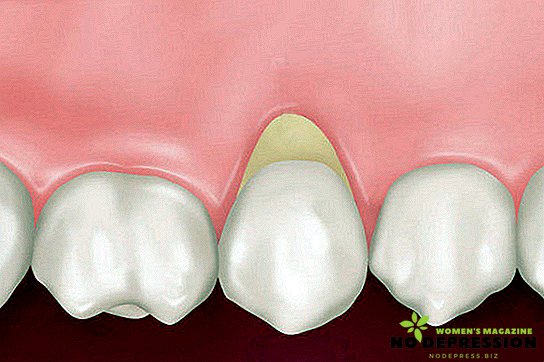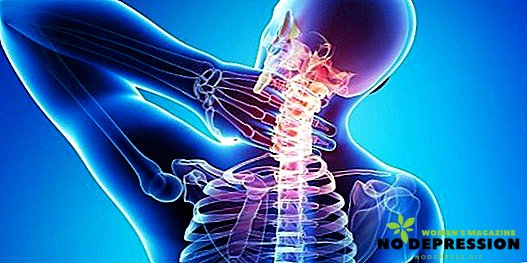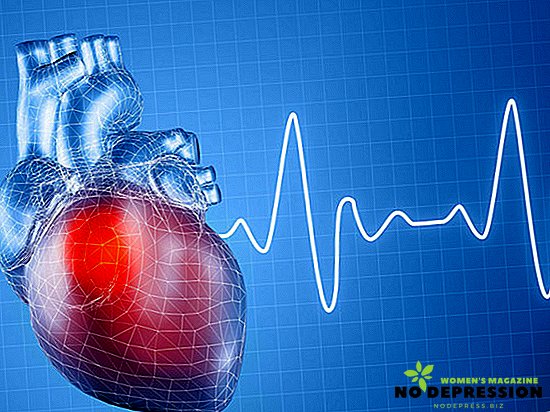The most difficult time of pregnancy is over. The term is nearing the equator - 20 week. The anxieties subsided, the future mother already quite consciously understands that she will soon acquire a new social status. What happens to the baby? What changes occur in this period with the future little man and his mother? We will understand in more detail.

19 weeks gestation - what happens to the baby
Almost all the vital systems of the body during this period are already formed. The child begins to actively grow and develop. At the 19th week of pregnancy, the total body length is about 13-15 centimeters, and the weight ranges from 150 to 250 grams.
Its size can be compared with the average mango fruit. Despite its still tiny size, the child already knows a lot: the expectant mother can already quite clearly hear his stirring, especially if the child is second to the woman.
If the movement has not yet been heard, do not panic - perhaps your child is not too large, and you can feel the first shocks in a week or two. While the toddler in the tummy is spacious, and he can easily swim in the amniotic fluid without any obstacles.
As for the physical development of the fetus at this time, its arms and legs continue to grow rapidly and become more proportional to the body. He is becoming more like a man.
Subcutaneous adipose tissue also continues to accumulate intensively in the area of the neck fold, kidneys and other organs. The skin of the child acquires a red tint, small folds appear on it. A protective lubricant that protects the baby’s skin from the surrounding bacteria and amniotic fluid continues to be actively released.
Due to the strengthening of the neck muscles, the child can actively move the head in different directions. The circulatory system continues to evolve. The spleen begins to perform its functions, helping the development of the circulatory system. Begins to actively develop and form the blood supply to the lungs, favoring their active development.
As for the nervous system, it is also already formed and continues to evolve. The brain and spinal cord are actively developing and forming. Nerve endings twist it and go down through the spine to the whole body.
This stimulates the development of conscious movements. The brain has already determined the places of development of the sense organs: taste, hearing, touch, smell and sight. The baby is already starting to taste the amniotic fluid.

The skeleton of the fetus begins to actively strengthen. Now many cartilages turn into bones. Under the roots of the future milk teeth, root buds are already forming. In this period of pregnancy it is very necessary to provide yourself with a balanced diet, enriched with calcium.
Also continues to actively develop the digestive system. The intestine is already able to produce meconium (the original feces, which is formed due to the absorption of amniotic fluid), accumulating it within itself.
But the child has learned to remove the excess fluid from the body: the kidneys and the diuretic system are so developed that they are able to process and bring the urine out.
As for the reproductive system, the organs are already formed and will continue to develop until the end of pregnancy. But to know the sex of the child is not always possible.
Even despite the modern methods of diagnosis, many children can hide their gender, turning away from the ultrasound machine. In girls, the ovaries are well developed, they already have the required number of eggs.
Among the skills that the baby has managed to acquire by the 19th week from conception, we can single out:
- although not yet consciously, but he already knows how to smile, yawns, squeezes pens into cams;
- the baby has already learned to suck a finger, and this occupation is very fascinating;
- The auditory system is so developed that the baby can hear sounds from the environment and actively respond to them. Therefore, from now on, try to shout less and be in noisy places, as it can be a lot of stress for a child. Very calming future crumbs your heartbeat;
- Also during this period of development, the child may react to bright light.
Changes in the body of the future mother
As you know, pregnancy is not only a pleasant process of carrying the heir, but also a difficult stage in the life of any woman. It is associated with many factors: toxicosis, changes in hormonal levels, mood, shape, and body weight. As for the 19th week of pregnancy, during this period such changes in the female body are noticed:
- increase in the size of the tummy. Now it’s harder and harder for you to hide your position under spacious clothing from others. This is due to an increase in the uterus, which is now about 1.3 centimeters below the navel, continuing to rise upwards;
- weight gain. If before this time the norm was a general increase in weight of 3-7 kilograms, then now every week you will gain about 300-500 grams;
- due to weight gain and a change in the center of gravity, the load on the spine increases. This can cause pain in the lower back or upper back. Especially, if previously a pregnant woman had health problems in this area;
- shifting the center of gravity provokes a change in the gait of a pregnant woman. When walking, a woman begins to wrap from side to side, resembling a duck's gait;
- Also, at this stage of pregnancy, there may be unpleasant symptoms in the area of the digestive system - heartburn. It appears due to the fact that the uterus, increasing in size, begins to put pressure on all internal organs, including the stomach, pushing the gastric juice into the upper esophageal canal. It is absolutely impossible to get rid of heartburn, but it is possible to alleviate the symptoms. To do this, reduce the size of portions eaten at once, establish a balanced diet, eliminate heartburn-provoking food, and take medication to lower gastric acidity, which your doctor will prescribe;
- toxicosis and its symptoms at this time often go away. But some women suffer from this phenomenon the whole pregnancy. It depends on the individual characteristics of the organism;
- hormones are also changing, which can lead to excessive irritability, depression, hot temper;
- integuments, especially in the abdomen, at this stage of pregnancy may itch. This is normal, because due to the growth of the tummy, the skin on it stretches, causing similar sensations. If the skin itches very much, and not only in the abdomen, consult a doctor. Perhaps you develop urticaria in pregnant women.

Analyzes and examinations, photo of the fetus
If you do not have complications and special complaints about your health, at 19-20 weeks you should see your leading gynecologist. He will measure body weight, blood pressure, abdominal circumference, and also pay attention to other possible changes in the body (for example, swelling of the legs and veins, pale skin, excessive fatigue, etc.) and listen to your complaints, giving recommendations for their elimination.
Also on this stock, it is necessary to re-screen the fetus, which will help determine the content and level of some hormones important for carrying a child. In addition, the doctor will prescribe you to undergo ultrasound, where you can once again see your future baby, hear his heartbeat and more accurately determine his gender.
A specialist ultrasound can take the necessary measurements and find out whether your baby is in order, and also pay attention to the state of uterine tone, the location of the placenta and fetus, the condition of the cervix and the volume of amniotic fluid.
Possible hazards in obstetric pregnancy week 19
19 weeks is the beginning of the second trimester, during which the risk of missed abortion and involuntary miscarriage is significantly reduced, but does not disappear altogether. At this time, you must carefully listen to your condition, and if any changes in health occur, consult a doctor. What is necessary to pay special attention?
The first sign is pain in the lower abdomen of various origins, which are often accompanied by brown or bloody discharge.
Also, when a pregnancy is frozen, the woman stops feeling the movements of the child that she felt before.
It is necessary to treat this pathology only surgically - by cleaning the uterus.
Another type of complication during this period of pregnancy is oligohydramnios. It occurs as a result of metabolic disorders or pathology of the placenta.
Doctor's recommendations
Many doctors agree on recommendations for pregnant women:
- if you have a sedentary job, try to change your body position as often as possible, do light exercises every half hour;
- Use cotton underwear and pay close attention to intimate hygiene. This will help you reduce the risk of thrush, dysbiosis and other bacteriological diseases. A soft, comfortable bra from natural fabric will not cause irritation, rubbing and pressing on the enlarged chest;
- beware of large crowds and places where you can be pushed, squeezed or hit;
- To avoid increasing the tone of the uterus and the development of infectious diseases, during pregnancy, replace bathing in the bathroom for shower procedures;
- beware of catarrhal, viral diseases, they can cause great complications. Also, in no case do not self-medicate. Even the most inoffensive drugs in your position may be strictly contraindicated. Take each pill with a gynecologist or a general practitioner;
- Do not neglect the intake of prescribed vitamins. Meals should be balanced and varied.
Be healthy, let your condition brings you only pleasure!
Some more useful information is in the next video.












